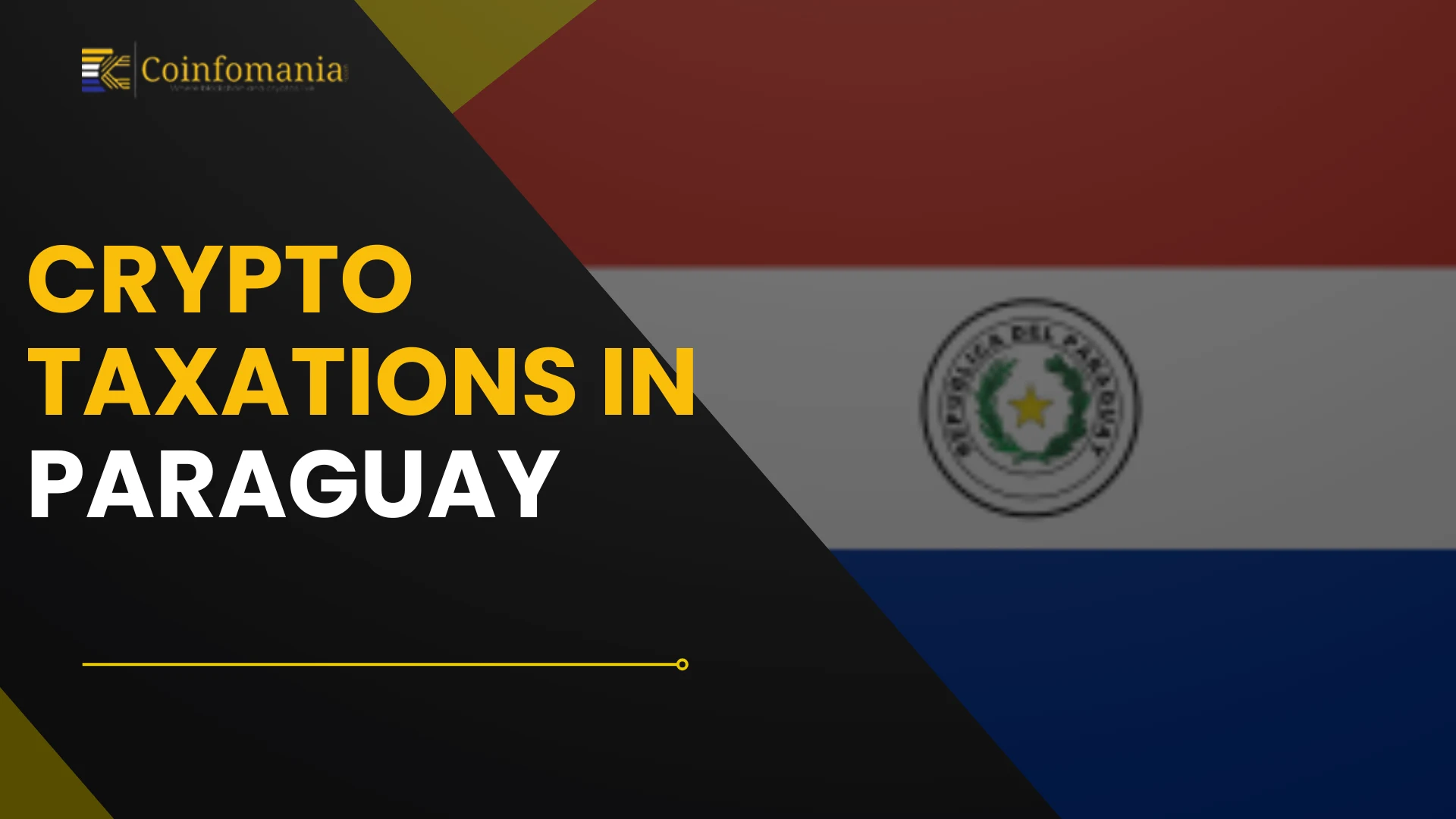Crypto Taxation in Paraguay: What You Need to Know for 2023

Paraguay Emerges as a Leading Crypto-Friendly Hub in 2025
In 2025, Paraguay has established itself as a premier destination for cryptocurrency enthusiasts, boasting a 0% capital gains tax and no income tax on personal crypto transactions. While businesses, including exchanges and mining operations, are subject to a standard corporate tax rate of 10%, individual traders enjoy tax-free status for activities such as trading, staking, and mining—unless these are conducted as a business. The Subsecretaría de Tributación (SET) oversees compliance, and there is no VAT on crypto transactions. The nation is particularly attractive to miners due to its inexpensive hydroelectric power, although formal legislation regarding cryptocurrencies remains uncertain. The government supports blockchain adoption, but companies must stay informed about evolving tax regulations to thrive in this low-tax, high-potential environment.
- Tax Authorities and Regulatory Framework
- Key Highlights:
- Overview of Crypto Taxation in Paraguay
- Capital Gains Tax
- Income Tax
- VAT/GST
- Corporate Tax
- Tax Rates and Brackets
- For Individuals:
- For Businesses:
- Tax Exemptions:
- Tax Treatment of Crypto Transactions
- Compliance and Reporting for Crypto Taxes
- Deductions and Exemptions in Taxation
- Enforcement and Penalties for Non-Compliance
- Future Outlook for Crypto Taxation in Paraguay
- Conclusion
- Frequently Asked Questions
- 1. Are there tax treaties in Paraguay that affect cryptocurrency taxation with other countries?
- 2. Are there any tax incentives available for crypto startups?
- 3. Does Paraguay impose taxes on crypto staking rewards or airdrops?
- 4. How does Paraguay handle crypto transactions conducted abroad by its residents?
- 5. Are there any reporting requirements for cryptocurrencies held in foreign exchanges?
Tax Authorities and Regulatory Framework
In Paraguay, the SET is responsible for tax administration. Currently, there is no specific legislation governing cryptocurrencies, but general tax principles apply. While Bitcoin is not recognized as legal tender, it is classified as a digital asset for taxation purposes. Recent discussions indicate that Paraguay is considering a regulatory framework for cryptocurrencies, but as of mid-2025, no formal laws have been enacted.
Key Highlights:
- Individuals face no capital gains tax on cryptocurrency investments.
- Earnings from crypto are not subject to income tax unless classified as business income.
- There is no VAT or GST on cryptocurrency transactions.
Overview of Crypto Taxation in Paraguay
Capital Gains Tax
Individuals benefit from a 0% capital gains tax on cryptocurrency profits, provided they are not engaged in frequent trading as a business.
Income Tax
Income tax applies only if cryptocurrency activities are classified as business income, such as mining or professional trading.
VAT/GST
No VAT or GST is imposed on any transactions involving cryptocurrencies.
Corporate Tax
Businesses that generate revenue from cryptocurrency are taxed at a rate of 10%.
Tax Rates and Brackets
For Individuals:
- 0% capital gains tax on profits from cryptocurrency.
- 0% income tax on casual earnings from crypto activities like airdrops and staking rewards.
For Businesses:
- A corporate tax rate of 10% applies if cryptocurrency is part of the business’s revenue.
Tax Exemptions:
- Personal crypto investments are exempt from taxation.
- No taxes are levied on crypto-to-crypto exchanges.
Tax Treatment of Crypto Transactions
- Buying and selling cryptocurrencies is not taxable for individuals.
- Mining and staking activities are tax-free unless conducted as a business.
- Salaries or payments received in cryptocurrency are taxed as ordinary income.
- Crypto-to-crypto trades do not trigger a taxable event.
- DeFi and yield farming activities lack clear regulations and may not be taxable unless classified as business income.
- NFTs are treated similarly to other cryptocurrency assets without specific tax rules.
Compliance and Reporting for Crypto Taxes
Individuals in Paraguay can invest in cryptocurrencies without any reporting obligations due to the 0% capital gains tax. However, businesses engaged in crypto must report their earnings in annual tax filings. It is advisable for individuals to maintain detailed records of transactions and wallet addresses for potential audits. Tax deadlines align with Paraguay’s fiscal calendar, typically occurring between March and July. Regulatory compliance requires an organized approach, especially given the anticipated changes in this crypto-friendly landscape.
Deductions and Exemptions in Taxation
Paraguay’s tax framework offers significant advantages for investors. Since personal gains from cryptocurrencies are tax-exempt, individual traders do not need to claim deductions. However, businesses can deduct operational costs, such as mining equipment and exchange fees, from their taxable income. A notable restriction is that crypto losses cannot offset other income, which balances the country’s generous 0% capital gains policy. This approach simplifies compliance for individuals while ensuring fair taxation for commercial activities.
Enforcement and Penalties for Non-Compliance
The Paraguayan tax authority is actively monitoring cryptocurrency activities while maintaining a favorable environment for digital assets.
- The SET enforces KYC compliance for crypto exchanges.
- Businesses that evade taxes may face fines or audits.
- Individual investors experience minimal enforcement pressure.
This dual approach aims to promote transparency in commercial crypto operations while allowing personal traders to benefit from tax exemptions.
Future Outlook for Crypto Taxation in Paraguay
Paraguay is expected to maintain its crypto-friendly policies with no significant tax changes anticipated before 2026. The 0% capital gains tax for individuals and the 10% corporate tax rate are likely to remain unchanged, although clearer regulations may be forthcoming. With an average crypto revenue per user of approximately US$30.60 in 2025, Paraguay’s market shows promising growth potential. The government may introduce incentives for blockchain technology, enhancing its attractiveness for miners utilizing affordable hydroelectric power. While Paraguay’s crypto sector is modest compared to larger markets like the US, it continues to evolve. Investors should stay informed about developments while enjoying one of the most favorable tax regimes in Latin America.
Conclusion
In 2025, Paraguay’s cryptocurrency taxation framework is recognized as one of the most advantageous in Latin America, featuring a 0% capital gains tax for individuals and a reasonable 10% corporate tax for businesses. The country’s supportive legislation, combined with abundant renewable energy resources, continues to attract miners and investors alike. While enforcement for personal transactions is relatively lenient, businesses must adhere to regulations to avoid audits and penalties. Given the dynamic nature of regulations, it is crucial for stakeholders to remain informed about compliance requirements and seek advice from tax professionals specializing in digital asset law in Paraguay.
Frequently Asked Questions
1. Are there tax treaties in Paraguay that affect cryptocurrency taxation with other countries?
Paraguay has limited tax treaties that do not specifically address cryptocurrencies, which may lead to potential dual taxation for some investors.
2. Are there any tax incentives available for crypto startups?
While there are no specific incentives for cryptocurrencies, tech startups may qualify under Paraguay’s general investment promotion laws.
3. Does Paraguay impose taxes on crypto staking rewards or airdrops?
Currently, Paraguay does not tax staking rewards or airdrops for individual investors, as long as these are not part of business activities.
4. How does Paraguay handle crypto transactions conducted abroad by its residents?
Paraguayan tax residents are required to declare their worldwide income, but crypto gains remain tax-exempt under current personal taxation rules.
5. Are there any reporting requirements for cryptocurrencies held in foreign exchanges?
At present, Paraguay does not have specific reporting requirements for cryptocurrencies held in foreign exchanges, even for tax residents.







